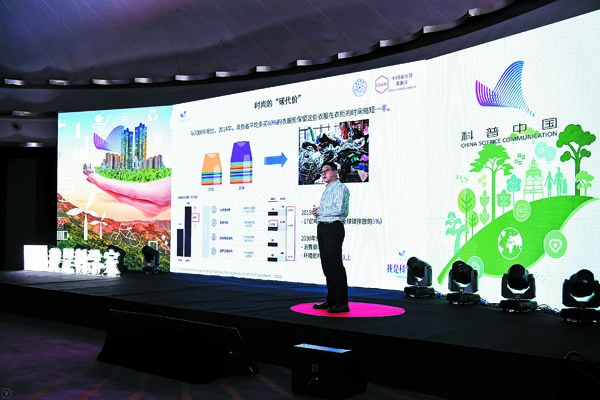Seeking a climate for survival


Tsinghua professor is leading authority on tackling global warming and has ignited public reaction to his clear message, Yang Feiyue reports.
Global warming, carbon footprints, the 2-degree limitation for temperature growth … all those abstract terms are vividly brought to life in Guan Dabo's lecture.
In addition to his academic research and teaching work, the climate change economics professor from the Department of Earth System Science at Tsinghua University, has made a point of "preaching" to the public.
"I'm a strong believer in environmental protection being up to every individual," Guan says.
His speech last year on I Am A Scientist, a multiplatform series of online articles and videos that is organized by the China Association for Science and Technology, enabled the audience to better understand how carbon consumption matters and relates to their own lifestyles.
"Since the industrial revolution, the burning of fossil fuels has released a lot of carbon dioxide into the atmosphere," Guan says, adding that the country's economic system is vulnerable to climate change.
"If we want to reduce the risks, we need to limit global warming to 2 or even 1.5 degrees by the end of this century," he adds.
Climate change could lead to a sharp decrease in rice, coffee, chocolate and beer production, Guan says.
"When we use carbon as a yardstick for understanding human activities, we realize that the dynamic process of carbon neutrality involves the issue of carbon accounting," he says.
The complexity and influence of the issue was what initially piqued Guan's academic curiosity and drove him to look into the field.
"Academic work is probably the same as any other job, and it has to be interest-driven," Guan says.
He noticed the importance of environmental protection in his childhood, when he lived near a pharmaceutical plant.
"There was a pungent odor," he recalls.
In 2000, he chose to pursue environmental management with science at the University of Leeds in the United Kingdom, and went on to obtain, by 2007, a PhD in ecological economics.
"I am naturally drawn to the environment, which is closely connected to our life," he says.
"The sustainable development, and interdisciplinary exploration between the environment and economics is just fascinating."




































